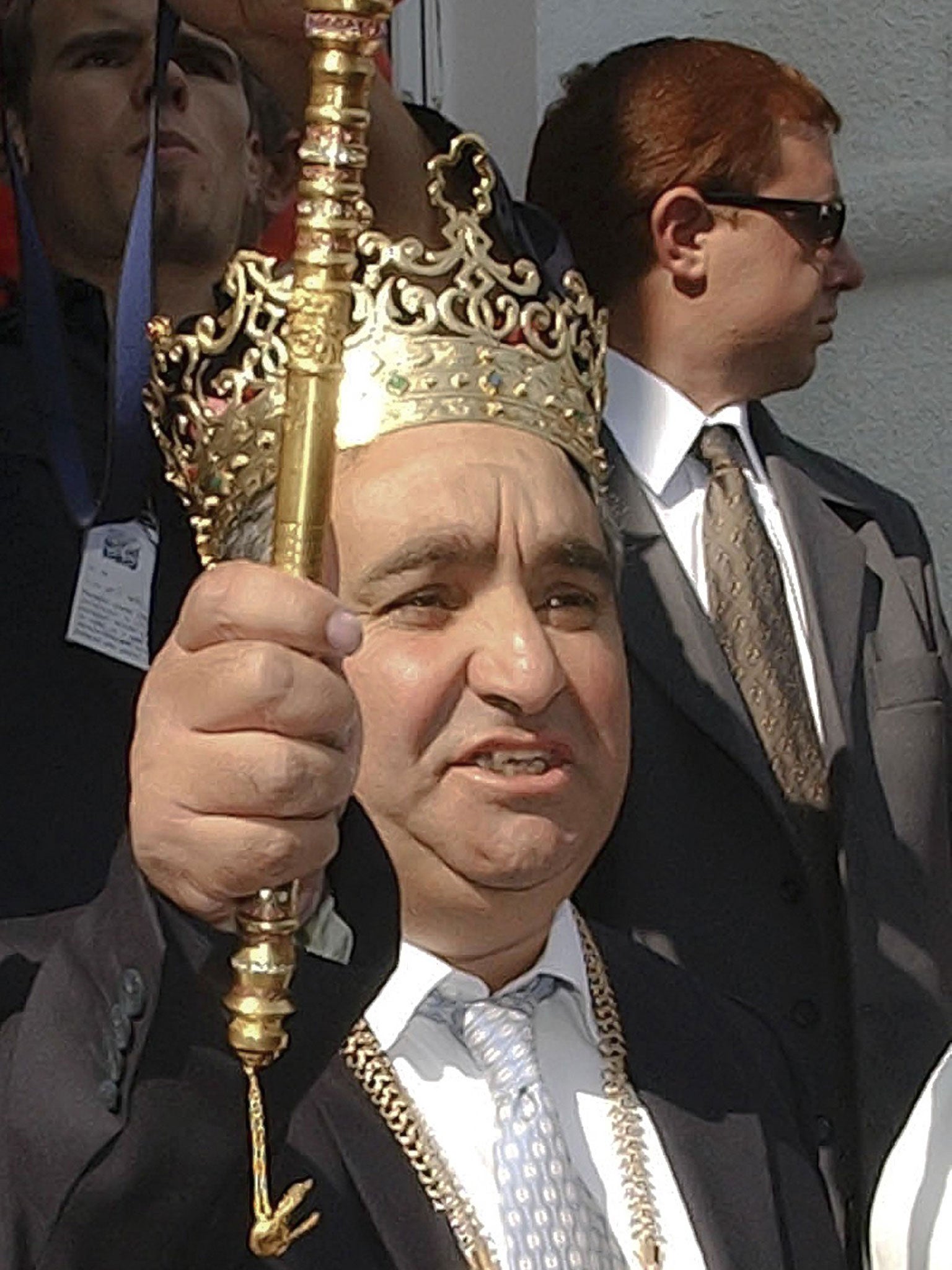Florin Cioaba: Activist and 'King of the Roma'

Florin Cioaba was the son of the Romanian Roma leader Ion Cioaba. His ancestors had been a powerful Roma family for several generations but they were no strangers to misfortune. Ion was deported, with thousands of other Romani people to Transdniestria in 1942 by the pro-Nazi Romanian dictator Ion Antonescu. With most of their property confiscated they were only allowed to carry hand luggage, with which they were supposed to survive the winter.
Antonescu was executed after the war; Cioaba survived the inhuman conditions. In the 1960s Ion Cioaba tried to integrate the Roma into Romanian society. This was official policy under the Communist regime and not all Roma accepted it. At the beginning of the 1990s the Roma wanted a "king" to represent them and fight for their rights. Florin's father went from being referred to as "Bulibasha", which means head of a tribe in Romani, to "king".
Florin Cioaba lived in some style in the old German-settled town of Hermannstadt, or Sibiu, in Transylvania, which since 1918 had been part of Romania. Together with Luxembourg it was named by the EU as a 2007 cultural capital of Europe. Cioaba's palace was famous for its gold-plated furniture and lavish interior design. He told a reporter, "We have a golden crown and a sceptre – made in 1992 in Italy at my father's command."
Florin Cioaba proclaimed himself "King of the Gypsies" in 1997 shortly after his father's death. His aim was to unite the gypsy tribes and represent them politically. This would prove extremely difficult as there are about 12 million Roma in Europe. The last Romanian census, in 2011, put their number at 619,000 out of a total population of 22 million but this is thought to be a large underestimate.
Most experts believe the undercounting was mostly due to a widely acknowledged practice whereby many Roma deny their ethnicity to census-takers to avoid the stigma of being attached to the bottom rung of the social hierarchy. Some Roma in Transylvania were reported to have claimed status as Hungarians as a means of gaining from Hungary's laws benefiting Hungarian minorities abroad.
Cioaba was by no means the only chieftain to claim Roma leadership. His cousin, Iulian Radulescu, had proclaimed himself "Emperor", and similar claimed leadership exists elsewhere. Cioaba was close to the ruling Liberal Democrat Party (PDL), while Radulescu was not aligned to any party. In 2008, around 500 Roma previously loyal to Cioaba changed their allegiance to the Romanian political party of the Roma, apparently through frustration with Cioaba, who they believed had not acted in their interests.
Like his father, Cioaba built up close ties to Romanian leaders. Remarkably, his terminal illness sparked competition between President Traian Basescu and Prime Minister Victor Ponta. The two rivals wanted to demonstrate their closeness to him; Basescu arranged for a prominent surgeon to visit Cioaba.
According to Cioaba, the EU has been changing the fate of the Roma in Europe since 2000, when the European Roma and Traveller's Forum was set up, of which he was Vice President. He regarded the EU as an immense opportunity for his people. However, the EU programmes are often not implemented, and the Roma face much discrimination, according to Cioaba, especially on a local political level.
Controversy dogged Cioaba. He had to answer to the European Parliament when his 13-year-old daughter, Ana Maria, was married to a Roma boy aged 15 in 2004. More than 200 guests attended the wedding at a Pentecostal church. Interviewed in 2007, he said his people wanted to hold on to their age-old traditions. "Changes shouldn't be rushed and shouldn't take place with the police standing at the doorstep," he said. He had himself been happily married at 14.
In 2007 Cioaba told a crowd of 3,000 Roma that thousands of poverty-stricken Roma were set to descend on countries like Britain and other EU countries like France and Italy. They would have a responsibility to look after gypsies, he said, providing them with homes and money.
Cioaba died of a heart attack in the Turkish city of Antalya, where he was on holiday.
David Childs
Florin Tanase Cioaba, Romani leader: born Sibiu (Hermannstadt), Romania 17 November 1954; married; died Antalya, Turkey 18 August 2013.
Join our commenting forum
Join thought-provoking conversations, follow other Independent readers and see their replies
Comments
Bookmark popover
Removed from bookmarks